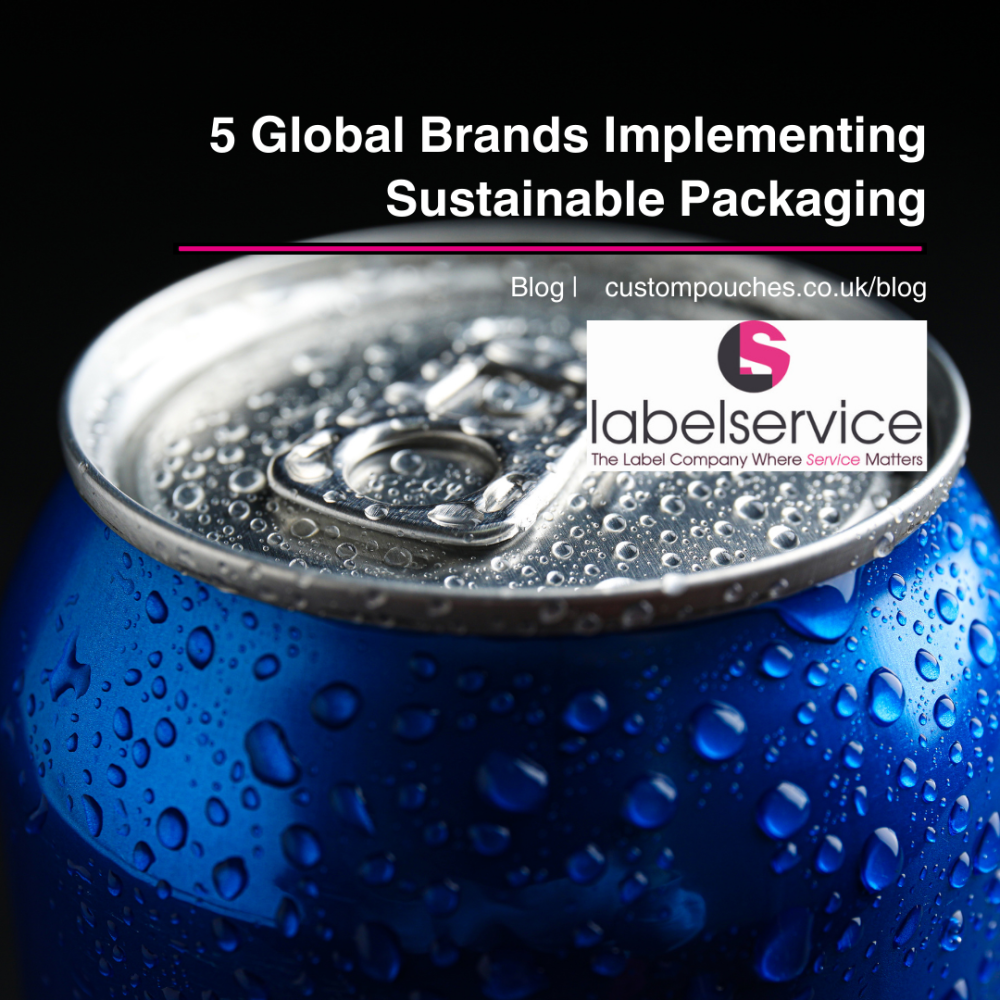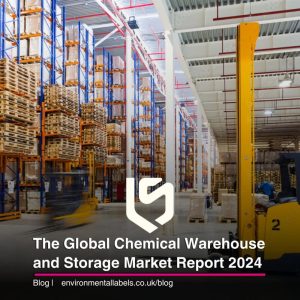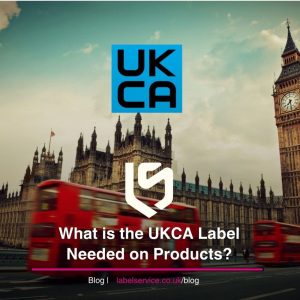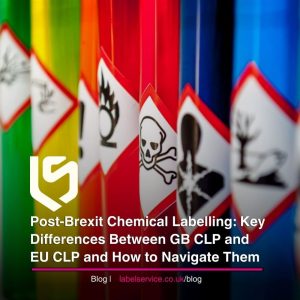Sustainable packaging is any type of eco-friendly material used to wrap, store, ship or shelve products. Compostable packaging is an increasingly popular form of sustainable packaging. It protects food products similarly to regular packaging, displaying the properties and resilience of traditional materials, however it breaks down fully in the ground into beneficial organic compost.
Sustainable packaging is made from materials like recyclable PET or HDPE plastics, cardboard, and paper, which can be reprocessed into new items. It also includes compostable materials such as PLA (starch-based) and cellulose, which biodegrade in compost, offering an eco-friendly alternative to traditional plastics. These materials are used in a variety of applications, from food containers and cutlery to flexible packaging and products in fashion and cannabis industries, combining environmental benefits with performance.
Amazon
Amazon has replaced 95% of the plastic air pillows from delivery packaging in North America with paper filler, working toward full removal by the end of the year. They’re constantly inventing and thinking big to make our packaging small. Theu want to ensure that customers receive their items undamaged, while using as little packaging as possible to avoid waste, and prioritising recyclable materials.
The removal of 95% of their plastic air pillows is another step in our path to avoid and reduce packaging—and part of their multi-year effort to remove plastic delivery packaging from North America fulfilment centres. To date, this will be Amazon’s largest plastic packaging reduction effort in North America and will avoid nearly 15 billion plastic air pillows annually. For Prime Day this year, nearly all of their customer deliveries will not contain plastic air pillows.
“I’m proud of the cross-Amazon collaboration to make a positive impact on the customer delivery experience with easier to recycle materials. It’s a great example of how we thoughtfully test and scale new solutions to protect our customer experience,” said Pat Lindner, VP of Mechatronics and Sustainable Packaging. “We are working towards full removal in North America by end of year and will continue to innovate, test, and scale in order to prioritise curbside recyclable materials.”
Last October, Amazon announced our first U.S. automated fulfilment centre in Ohio to eliminate plastic delivery packaging, including the transition from plastic air pillows to paper fillers. This work in Ohio allowed us to test and learn and move quickly on transitioning to paper filler for 95% of our shipments in less than a year. To achieve this, our teams collaborated with suppliers to source paper filler made from 100% recycled content, while also coordinating the transition across hundreds of our fulfilment centres. This included working with thousands of employees to change our machinery as well as to host employee training for these new systems and machines.
PepsiCo
A prime example of the scale of collaboration that’s required today to drive sustainable packaging innovation is a new snack bag that can be found on shelves in the U.K. and Ireland for PepsiCo Europe’s Walkers Sunbites chip brand. Introduced in late 2023, the new snack bag is made from 50% recycled content from chemical recycling technology and is the result of a partnership between six supply chain partners: Green Dot, Plastic Energy, Ineos Olefins & Polymers Europe, Irplast, and Amcor, along with PepsiCo.
The launch moves PepsiCo Europe closer to fulfilling its PepsiCo Positive (pep+) commitment to eliminate virgin petroleum-based plastic in its crisps and snack bags by 2030. Specifically, PepsiCo says the move to the new material will eliminate 200 metric tons of fossil-based plastic, based on 2023 U.K. annual sales volumes of Sunbites, across the snack packaging by the end of 2025.
The pivotal piece of technology that enables the production of the certified circular packaging is Plastic Energy’s patented Thermal Anaerobic Conversion (TAC). Using this patented pyrolysis process, Plastic Energy heats plastic waste until it becomes a plastic melt, then pumps it into its reactors. There, the plastic melt is further heated in the absence of oxygen and changes from a liquid to a vapour. Condensed vapours are then refined through a series of separators and filtration steps, creating a synthetic pyrolysis oil, branded Tacoil by Plastic Energy, that is then used as a feedstock for new plastics.
According to Plastic Energy, results of an LCA of its process show that to produce 1 kg of low-density PE, chemical recycling emits 0.86 kg CO2e, or 55%, fewer emissions than producing 1 kg of plastic from fossil origin. “Compared to virgin (fossil) LDPE plastic, chemically recycled LDPE has lower climate change and resource depletion scores,” the company says.
Tacoil is made from low-quality, mixed-plastic polyolefin waste, including high-density PE, LDPE, polystyrene, and PP that would otherwise be incinerated, sent to landfill, or downcycled. This includes multilayer flexible films that can’t be recycled, as well as monolayer films that, while recyclable, are oftentimes used for non-packaging applications such as synthetic lumber for decking or park benches.
GreenDot, which began as an EPR licensor in Europe and has since expanded its capabilities to collecting, sorting, and mechanically recycling packaging waste, is procuring the plastic waste feedstock for the Sunbites package. In May 2024, GreenDot announced that PepsiCo would be supporting its investment in new recycling solutions, including advanced recycling facilities.
Said PepsiCo Europe Chief Sustainability Officer Archana Jagannathan at the time of the announcement, “The partnership is critical to scaling our operations and working together towards our shared goal of creating a circular economy for packaging. Advanced and mechanical recycling are part of a broader suite of recycling we are leveraging to bring us one step closer to this goal. Closing the loop between plastic and recycled content is a central part of our PepsiCo Positive agenda. We aim to reduce the waste we send to landfill in our direct operations and across our value chain.”
Upon the launch of the new packaging, PepsiCo UK & Ireland Sustainable Packaging Lead Gareth Callan said, “The Sunbites transformation marks our ongoing commitment to offering products that are better for both people and planet. We’re proud of the progress we’ve made so far to reduce the fossil-based plastic we use and meet demand for healthier snacking options without sacrificing the taste.”
Many consumers put packaging waste and, more broadly, concerns about sustainability on the back burner during the pandemic. But reducing packaging waste has returned as an attribute that is influencing purchasing decisions.
Kellanova
Consumers recognise packaging is a necessity; that it helps ensure product quality and safety, while communicating nutrition information and preventing food waste. However, more consumers also believe the benefits should not come at the expense of the planet.
Reducing packaging materials and improving their recyclability help contribute to a more sustainable and circular economy. And consumers want to know that the companies they buy products from are doing their part. Food and beverage marketers are responding by switching to more sustainable packaging and communicating these changes to shoppers.
At the end of 2023, Chicago-based Kellanova announced it had reduced the amount of plastic — compared to the same volume the previous year — used in the packaging of three popular snack brands: Cheez-It Snap’d, Cheez-It Puff’d and Club Crisps. The packaging designs were optimised, reducing the total material weight for the three products by 672,000 lbs, reducing 124,000 lbs of plastic and reducing 548,000 lbs of corrugated cardboard used for shipping cases annually.
The packaging design aligns with Kellanova’s commitment to work toward packaging that is 100% reusable, recyclable or compostable by the end of 2030. Kellanova also has a goal to reduce virgin (newly made) plastic by 5%.
Papkot
We now have fully biodegradable and recyclable, plastic-free and fluorine-free, packaging thanks to Papkot’s paper coatings. While in the oceans we have almost more plastic than fish, preserving the environment, protecting our planet, reducing the ecological footprint of packaging is more essential than ever.
Papkot has no effect on the natural biodegradability of paper: that’s why Papkot makes your paper packaging truly biodegradable. As a result, it can be composted in your backyard. Papkot coated papers have a recyclability rate of 99.9% according to the most advanced European standards. There will be no coarse reject, flakes, or stickies. For countries that can afford a waste management system, it’s a home run.
As straightforward as it appears, their product contains absolutely NO plastic. In a world where we’ve seen a surge of plastic alternatives made from sources like seaweed, potatoes, lettuce, and milk, Papkot stands out as a genuinely plastic-free solution. Crafted from ceramic materials, Papkot delivers on its promise — no plastic, no deception, no harm to the environment.
Papkot coatings work effectively on almost any paper. It is compatible with both virgin or recycled fibres. Their collaboration will always begin with identifying the best support. Papkot OS can be applied before printing or after printing, on the web or the sheets.
Many toxic materials are used unconsciously or recklessly in packaging and the printing industry in general. In the coming years, authorities around the world will ban materials like epoxy or SBR (Styrene Butadiene Rubber) from varnishes, and Papkot OS can already replace the majority of them.
Some of these materials are not only (potentially) toxic, but also costly and non-sustainable. Release liners are the pieces of paper left over after you peel off a label to stick it somewhere else. The silicone coating on typical labels release liners renders them non-recyclable, non-biodegradable, hence expensive to dispose of. It is estimated that nearly 1,200,000 tons of liners are dumped into landfills in North America each year. Papkot manufactures a coating that makes the release liner completely recyclable and biodegradable by using only cellulose and silica.
Aquapak Polymers
A new survey of 100 UK packaging experts from fast-moving consumer goods (FMCG) brands has revealed a pressing need to shift towards more sustainable packaging options, primarily paper-based materials. The research, conducted by Aquapak Polymers, underscores the significant reputational and financial dangers posed by lagging behind on environmental performance.
Two-thirds of respondents rated the threat to their business from inadequate packaging sustainability as ‘high’, with almost three-quarters expressing concerns about potential reputational damage.
The research also highlighted the risk of missing environmental, social, and governance targets, losing market share to competitors, and facing pressure from nongovernmental organisations and investors. While reducing or eliminating plastic altogether was ranked as the least important priority, the survey indicated a strong focus on improving packaging’s environmental impact.
This includes increasing the use of paper-based materials, enhancing operational energy efficiency, and reducing the carbon footprint of logistics. The report emphasised the pivotal role of packaging in an FMCG company’s overall success.
While packaging directors are often seen as key decision-makers in sustainability initiatives, the research shows that CEOs, finance directors, and brand directors are also heavily involved. “It is really encouraging to see that moving to sustainable packaging materials such as paper is the top priority for FMCG brands and a board-level decision when it comes to improving their environmental credentials and mitigating reputational and financial risks of not doing so,” said John Williams, CTO at Aquapak.
“Abolishing the wrong sort of plastic use is important and is a longer-term target, the change has to be balanced as they assess alternative materials and wait for greater clarity around targets and regulation.” Aquapak, a specialist in polymer-based materials, offers Hydropol as a potential solution. This innovative polymer can be coated or laminated onto paper, providing strength and barrier properties while maintaining recyclability through standard paper recycling processes. Hydropol is also nontoxic and compostable.
As the packaging industry grapples with increasing environmental scrutiny, the findings of this research serve as a stark reminder of the imperative to prioritise sustainable solutions.

















